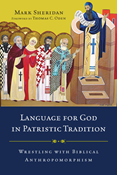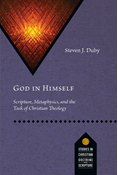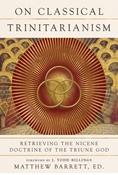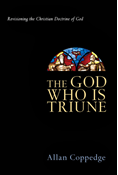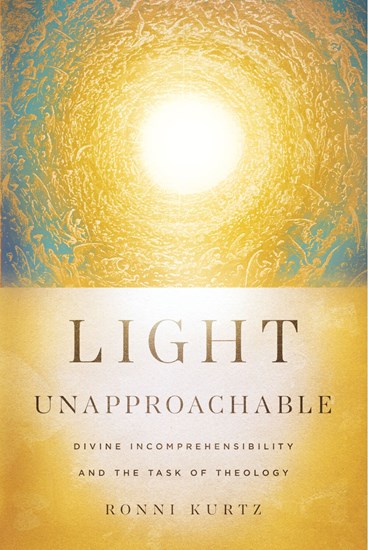
|
Light Unapproachable
paperback
|
- Length: 224 pages
- Dimensions: 6 × 9 in
- Published: November 12, 2024
- Imprint: IVP Academic
- Item Code: A0710
- ISBN: 9781514007105
-
Other Retailers:
Amazon*
*affiliate partner
How can finite creatures know an infinite God? How does limited knowledge impact what we can say of God?
Retrieving and constructing important insight from Scripture and key patristic, medieval, early modern, and modern theologians, Ronni Kurtz presents a rich analysis of the doctrine of divine incomprehensibility. Our theological language, says Kurtz, cannot capture the full mystery of God. However, our inability to see God in his totality should not lead us to despair. Through God's gracious accommodation, we can learn to speak of God faithfully, truthfully, and prayerfully.
Kurtz's dialogue with varying traditions to unpack divine accommodation reminds us that theologians in all ages have wrestled with what we can and cannot say of God.
"This is a lovely book—rooted in and expressive of love for God, love for Jesus Christ, love for Scripture, and love for all who thirst to know the God who reveals himself in Christ and through the biblical Word. Kurtz has managed to unite faith, scholarship, profundity, and readability on a crucial topic. We need more books like this one!"
"With its negative prefix, divine incomprehensibility appears to say that knowledge of God is impossible, thereby leading some people to become agnostic. Like appearances, however, prefixes too can be deceiving. By retrieving the classical formulation of the doctrine of divine incomprehensibility together with the all-important Creator-creature distinction, Ronni Kurtz ably demonstrates why divine incomprehensibility need not lead to agnosticism. Unlike God, Light Unapproachable is far from being incomprehensible. It is a clearly written, cogently argued, and readily comprehensible account of how theology can apprehend what the accommodating God has chosen to reveal about himself."
"If man's chief end is to glorify God and enjoy him forever, as one catechism puts it, it would seem that knowledge of God should be possible. Yet, all the historic Christian traditions affirm the incomprehensibility of God. How is this possible? Ronni Kurtz has provided for us a masterful demonstration of how incomprehensibility must be accepted as a divine perfection and therefore as something extolling God's glory. This volume shows the implications of this attribute for the practice of theology itself, showing that the knowledge of God does not imply conceptual mastery."
"It is nothing short of amazing that so few theologians today have written on God's incomprehensibility. Perhaps this is not surprising. After all, the title wave of modern theology has left us with a domesticated God, vanquishing the beauty of the infinite. In the wake of this wasteland, Ronni Kurtz is planting new seeds with deep roots in sacred Scripture and the Great Tradition. With a clarity that matches the accessibility of his research, Kurtz demonstrates that the incomprehensibility of God is foundational to the recovery of classical theism today. More still, God's incomprehensibility is like a rich garden in which each vine is connected to the next as God's incomprehensibility connects everything from divine simplicity to the analogy of being to our participation in the beatific vision. Truly, Kurtz has planted the seeds for a great harvest to come."
"With the grace of an experienced teacher, Ronni Kurtz shows why the confession of God's ultimate incomprehensibility has formed the heart of Christian theology since at least the fourth century. His book draws the reader into the depths of the God revealed as mystery."
"Kurtz's Light Unapproachable starts out with solid Christian common sense about how God accommodates revelation to us, then elaborates it with biblical analysis, fortifies it with historical witnesses, and applies it to a project in theological method with great promise for a wide range of readers."
CONTENTS
Part 1: Introduction, Antiquity, and the Biblical Data
1. Introducing the Doctrine of Divine Incomprehensibility
2. Divine Incomprehensibility in the Biblical Data
3. Divine Incomprehensibility in Theological Antiquity, Part One: The Anomoean Controversy and the Early Church
4. Divine Incomprehensibility in Theological Antiquity, Part Two: From Pseudo-Dionysius to Modernity
Part 2: Divine Incomprehensibility and the Task of Theology
5. Implications from Ontology: The Creator-Creature Distinction
6. Implications of Language and Knowledge: Accommodation, Analogy, and the Archetype
7. Implications of Posture: The Necessity of Theological Humility
Appendix: Working Theses on Incomprehensibility and Theological Method: Principles for Knowing and Naming the Incomprehensible God


